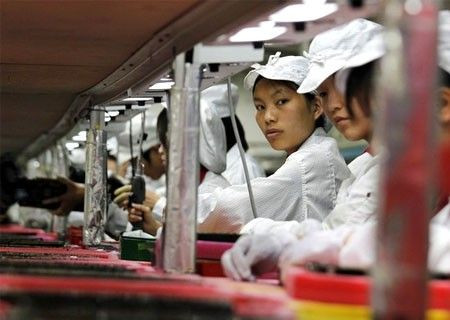Chinese Woman Wins Settlement In China's First Ever Gender Discrimination Lawsuit

The first woman to bring a gender discrimination lawsuit in China won a small settlement, but made a larger point against the country's often gender-biased work environment.
The settlement in the case of a young Chinese graduate, a 23 year old who goes by the pseudonym of Cao Ju, was recently made public, and stands as a landmark decision in Chinese courts. Cao was paid a settlement of 30,000 yuan, which is just under $5,000, along with an official apology after taking a potential employer to court because recruiters openly gave preference to men for the position. However, the money will not be going into her pockets, but rather to a project that helps promote equal opportunity employment for women in China.
The position she was applying for was an administrative assistant job at the Juren Academy, a private tutoring firm in Beijing. “I really needed a job to pay off my [school] loan. I wanted this job, I was a bit angry,” she said. “I think as long as the person is capable of doing the work the post requires, gender is irrelevant.” The company, however, believed that it was relevant because the employee would be asked to do “physical tasks” -- specifically, changing the jug in the office water cooler. Cao, who believed that her gender did not affect her ability to do such tasks, took her case to court.
“Although we have a law to ensure women enjoy the same right as men to obtain jobs, in reality you can see many companies write ‘women not wanted’ openly and brazenly in job adverts,” Cao’s lawyer, Huang Yizhi, told the Guardian. “It is very strange. No government department supervises it and no government department punishes them.”
Juren’s CEO told state media that the firm has never discriminated against women in the past, and that its staff is actually predominantly female. During the court hearing, which occurred in late December last year, the principal admitted to discrimination in that recruiting instance, but did not intend it as such. The company’s defense argued that because the current staff is 78 percent female, a balance of males were needed to take charge of more physically demanding tasks.
The project, Cao says, is to help empower women to have the rights they deserve, in and out of the workplace: “Women need to improve their awareness of their rights and to be more independent.”
Like in many other cultures, Chinese women have begun breaking the corporate glass ceiling with C-Level role models like Soho China entrepreneur Zhang Xin. China has also hit a lot of milestones recently, such as sending the first female astronauts into space and giving the First Lady, Peng Liyuan, a voice and image that is separate from her husband, President Xi Jinping, for arguably the first time in history.
Still, Cao’s statement rings universally true. According to statistics from the World Economic Forum, China ranks 69th in gender gap ratings out of 136 countries.
© Copyright IBTimes 2025. All rights reserved.






















